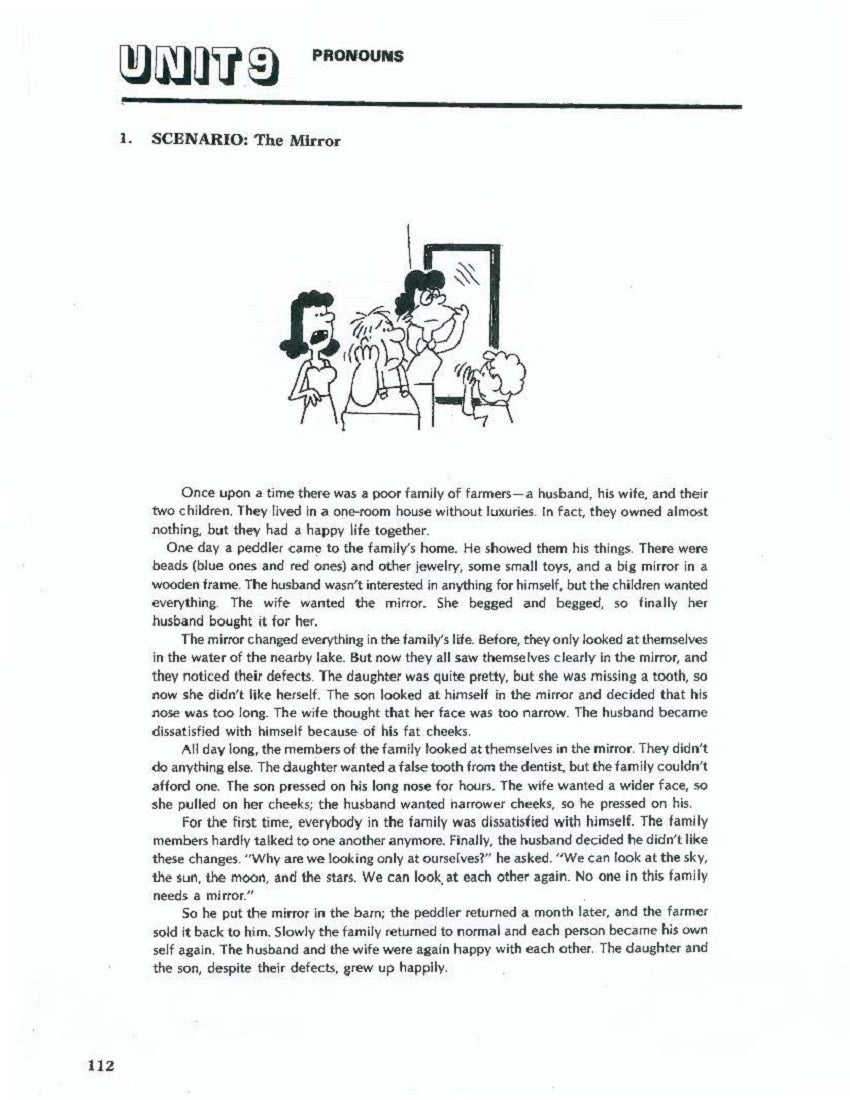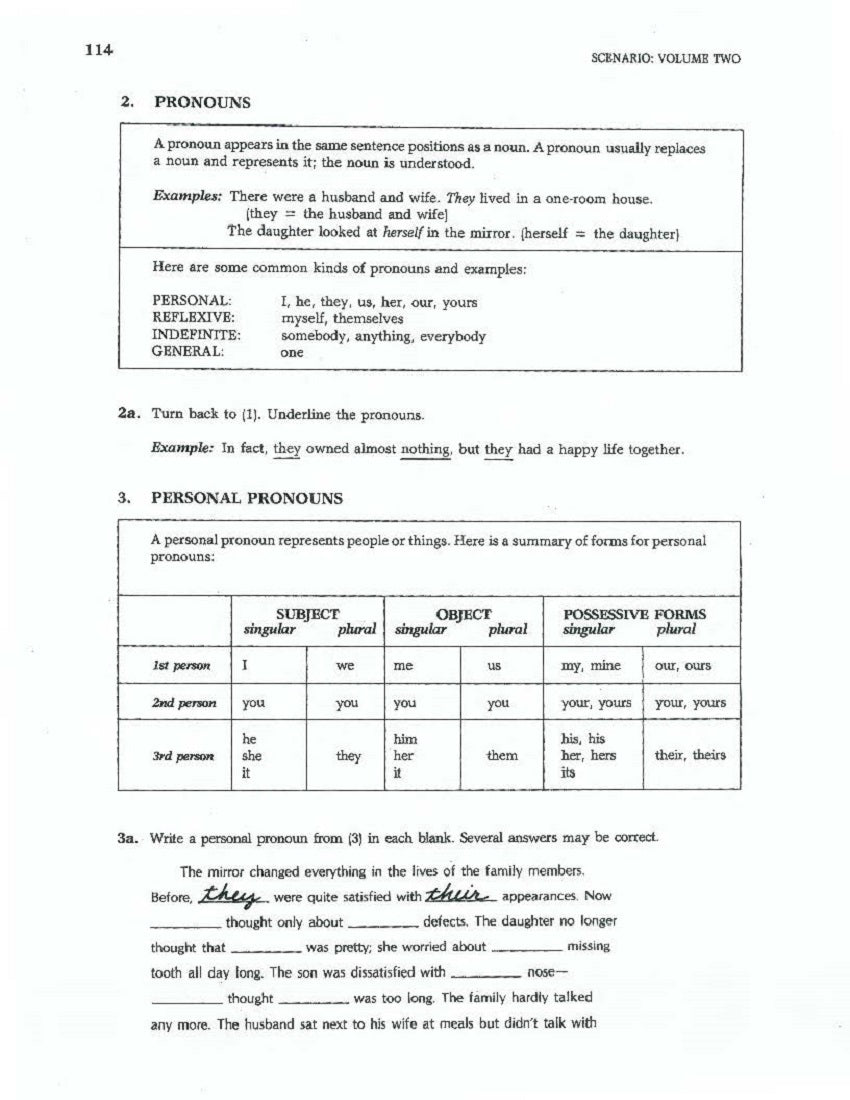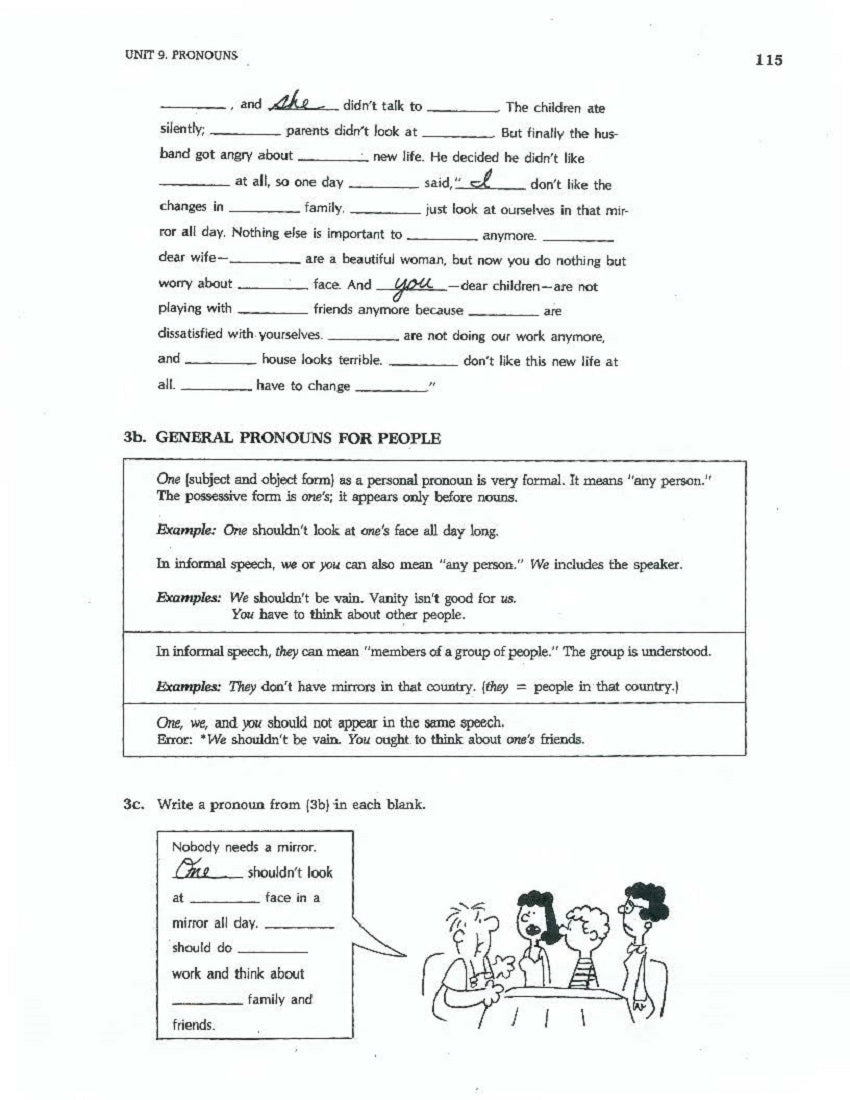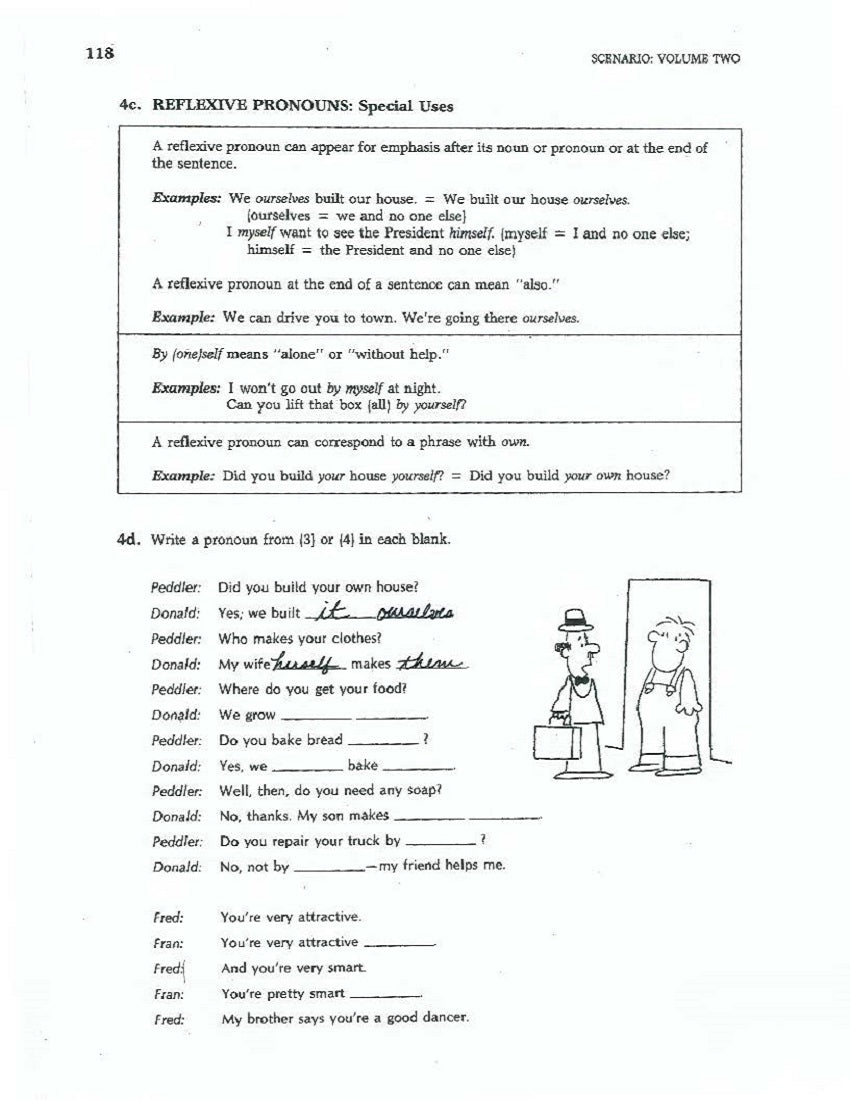1
/
of
4
Work/Life English
D-12.05 Use All Kinds of Pronouns (Personal, General, Reflexive, Reciprocal, Indefinite) to Learn & Tell About Yourselves & Everyone Else
D-12.05 Use All Kinds of Pronouns (Personal, General, Reflexive, Reciprocal, Indefinite) to Learn & Tell About Yourselves & Everyone Else
Regular price
$4.00 USD
Regular price
Sale price
$4.00 USD
Unit price
/
per
Unit 9: Pronouns (“The Mirror”) of the Original Scenario, Volume Two: English Grammar in Context, pages 112-128
17 pages
Who It’s For: (Self-) Teachers & Helpers at Advancing to (High-) Advanced Proficiency Levels Who Want to Know “Just About All There Is to Know” about “Lesser Parts of Speech” like Pronouns
Why It’s Useful: At most levels of linguistic proficiency, language learners know all about Personal Pronouns—Subject (I, we, she, they, etc.); Object (me, us, her, it, etc.); and Possessive (mine, ours, hers, theirs, etc.)—as well as Possessive Pronouns (my, your, his, its, etc.). They may be less knowledgeable, however, about the minor types of Pronouns That (Also) Stand for Nouns. This old-fashioned black-and-white Unit brings in “General Pronouns for People” (one, we, you, they); “Reflexives” (myself, ourselves, yourselves, itself, etc.); “Reciprocals” (each other, one another); “the Pronoun One”; “Indefinite Pronouns” (somebody[’s], everyone[’s], nothing, etc. Here’s instruction on regular and special uses of and rules for all of these.
What You’ll Do:
[1] Noting the several types of pronouns in the Scenario in [1], “The Mirror,” read and appreciate the fable, appreciating its universality and timelessness. Keeping both its meaning and its grammar in mind, complete Comprehension Sections 1a-1b, Grammar Boxes + (Multi-Leveled) Follow-Up 2-2a, 3-3c, 4-4g, 5-5c, 6-6d.
[2] With the “Summary of Pronouns” in Explanation 7, review (compare and contrast) what you now know about the forms, meanings, and applications of the kinds of pronouns that “stand for” nouns. Then use the “Talking It Over” and “Writing It Down” segments to utilize the targeted grammar to advantage in your own stories about possessions, greed vs. giving, happiness vs. self-absorption, selfishness vs. selflessness, human relationships vs. self-isolation, and whatever else comes to mind when considering our pasts, presents, and futures.
Couldn't load pickup availability








